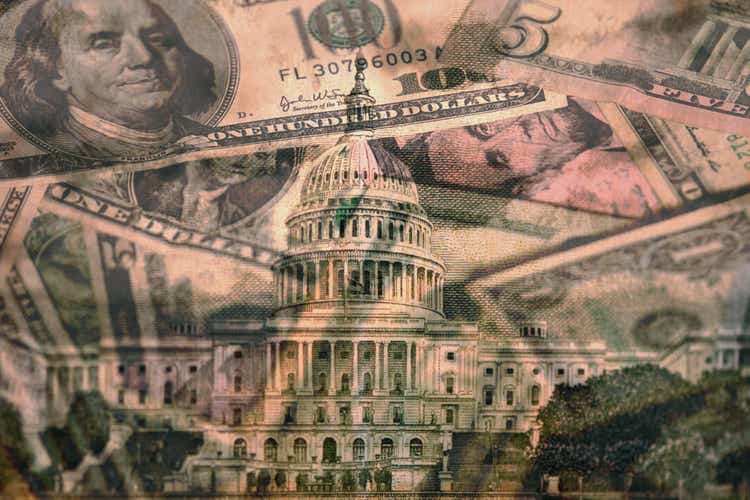
Douglas Rissing
The U.S. on Thursday will reach its statutory debt limit of $31.4T, prompting a series of extraordinary measures to avoid a default on government debt. Looking to conserve capital at the federal level, the Treasury will start withholding investments from retirement funds for some government employees, while other measures will take weeks or months to kick in. “Failure to meet the government’s obligations would cause irreparable harm to the U.S. economy, the livelihoods of all Americans, and global financial stability,” Treasury Secretary Janet Yellen declared. “I respectfully urge Congress to act promptly to protect the full faith and credit of the United States.”
SA commentary: “The Treasury could just ignore Congress and issue notes and bonds with coupons well above current yields,” wrote SA contributor James Baker, referencing a novel solution to the debt crisis. “There is a big mess taking place behind the scenes,” noted Mark Grant, saying there might be drastic impacts upon the financial condition of the Fed. “Reducing the deficit is not the same as reducing the debt,” added Ronald Surz, cautioning that “U.S. debt continues to climb into the stratosphere.”
While there will be discussions over the next few months, things are not likely to get serious until after the tax season deadline in mid-April, when the Treasury will know how much tax receipts and revenue have come in. That will reveal exactly how much time will be left on the clock until the government runs out of cash, though its obligations are likely to be funded until at least June. While raising the debt ceiling has turned into a bitter partisan issue over the years, even prompting a credit rating downgrade of U.S. government debt in 2011, both parties have always reached a late deal to avoid the country going into default.
Game of chicken: Tensions are definitely on display this time around due to the razor thin margins in Congress. Republicans are looking for big budget cuts, while Democrats and the Biden administration are threatening to play hardball with a clean vote and no conditions. Only a handful of rejections could derail any deal, and concessions may be a lot harder to come by, especially with extreme flanks enveloping both sides of the debt limit debate.
ETFs: NASDAQ:SHY, NYSEARCA:MINT, NASDAQ:VGSH, NYSEARCA:BIL, NASDAQ:SHV, BATS:NEAR, NYSEARCA:SCHO, BATS:ICSH, NYSEARCA:GBIL, NYSEARCA:SPTS, NASDAQ:FTSM, NYSEARCA:ULST, NASDAQ:FMHI, NYSEARCA:CLTL, NYSEARCA:HOLD, NYSEARCA:RAVI, NYSEARCA:SGOV, BATS:BBSA, NYSEARCA:FTSD, NYSEARCA:BILS
Source link
